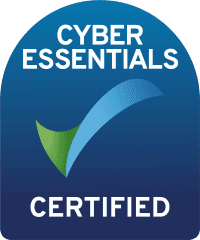Congratulations to Sarah on Passing Her CIPP Payroll Technician Exams

On behalf of all the team we would like to welcome the new newest member of the CIPP family on passing her CIPP Payroll Technician exams.
Sarah is a great asset to the team and has worked tirelessly to help clients and the team so it gives me great pleasure to say Congratulations to Sarah on passing her CIPP Payroll Technician exams.
As a business, we offer a great service, but we are not complacent in our achievements, we can do more and only by investing in our people, can we achieve this.
So once again, well done Sarah, you worked for the qualification and you deserve it, well done.
For anyone reading this article that may be interested in what is required to gain the qualification:
Requirements for CIPP Payroll Technician
- Ascertaining gross pay
- Classifying taxable and NICable pay elements
- Calculating pay apportionments correctly
- Processing deductions
- Ascertaining what makes a deduction from pay lawful
- Classifying the three types of deductions
- Distinguishing deductions which affect taxable and NICable pay
- The administrative considerations for voluntary deductions
- Calculating National Insurance Contributions
- Recognising the names and current amounts of NIC thresholds
- Listing the current rates of NICs for each category letter
- Identifying the correct NI category letter for employees
- Calculating NICs using the exact percentage method
- Calculating NICs using the Table method
- Identifying different tax codes
- Identifying circumstances which warrant 'emergency tax codes'
- Categorising different tax codes
- Distinguishing Scottish tax codes
- Calculating income tax
- Identifying the different allowances available
- Navigating through pay adjustment table A
- Calculating income tax using the table method
- Calculating income tax using the manual method
- Awareness of circumstances where tax refunds may be processed
- Administering starters and leavers correctly
- Listing information required for processing starters & leavers
- Completing forms P45 and New Starter Checklist correctly
- Pensions
- Overview of different types of pension schemes
- Identify the different tax relief mechanisms for pension contributions
- Student loan deductions
- Identify employees liable to student loan deductions
- Distinguish the different student loan repayment plans
- Calculate Student loan deductions
- Court orders
- Define attachable earnings
- Identify the different array of court orders
- Distinguishing court orders from arrestment orders
- HMRC remittances
- Administer remittances due to HMRC accurately
- Recognise the statutory payment offset amounts
- Summarising the key features of apprentice levy
- Explaining the purpose and employer eligibility for the employment allowance
- Statutory payment compliance
- Overview of HMRC’s compliance role with statutory payments
- Outlining the arbitration route with statutory payment decisions
- Statutory Sick Pay (SSP)
- Determining employees eligible for SSP
- Interpreting periods of incapacity to work, qualifying days and waiting days
- Calculating SSP payments
- Outlining record keeping requirements for SSP
- Statutory Maternity Pay (SMP)
- Determining employees eligible for SMP
- Interpreting week baby due, qualifying weeks and employment start dates
- Calculating SMP payments
- Identifying contractual considerations for employees on maternity leave
- Outlining record keeping requirements for SMP
- Statutory Adoption Pay (SAP)
- Determining employees eligible for SAP
- Calculating SAP payments
- Statutory Paternity Pay (SPP)
- Determining employees eligible for SPP
- Calculating SPP payments
- Shared Parental Pay (ShPP)
- Overview of the principles of ShPP
- Statutory Parental Bereavement Pay (SPBP)
- Determining employees eligible for SPBP
- Calculating SPBP payments
You can find more details about the CIPP qualifications on their website




